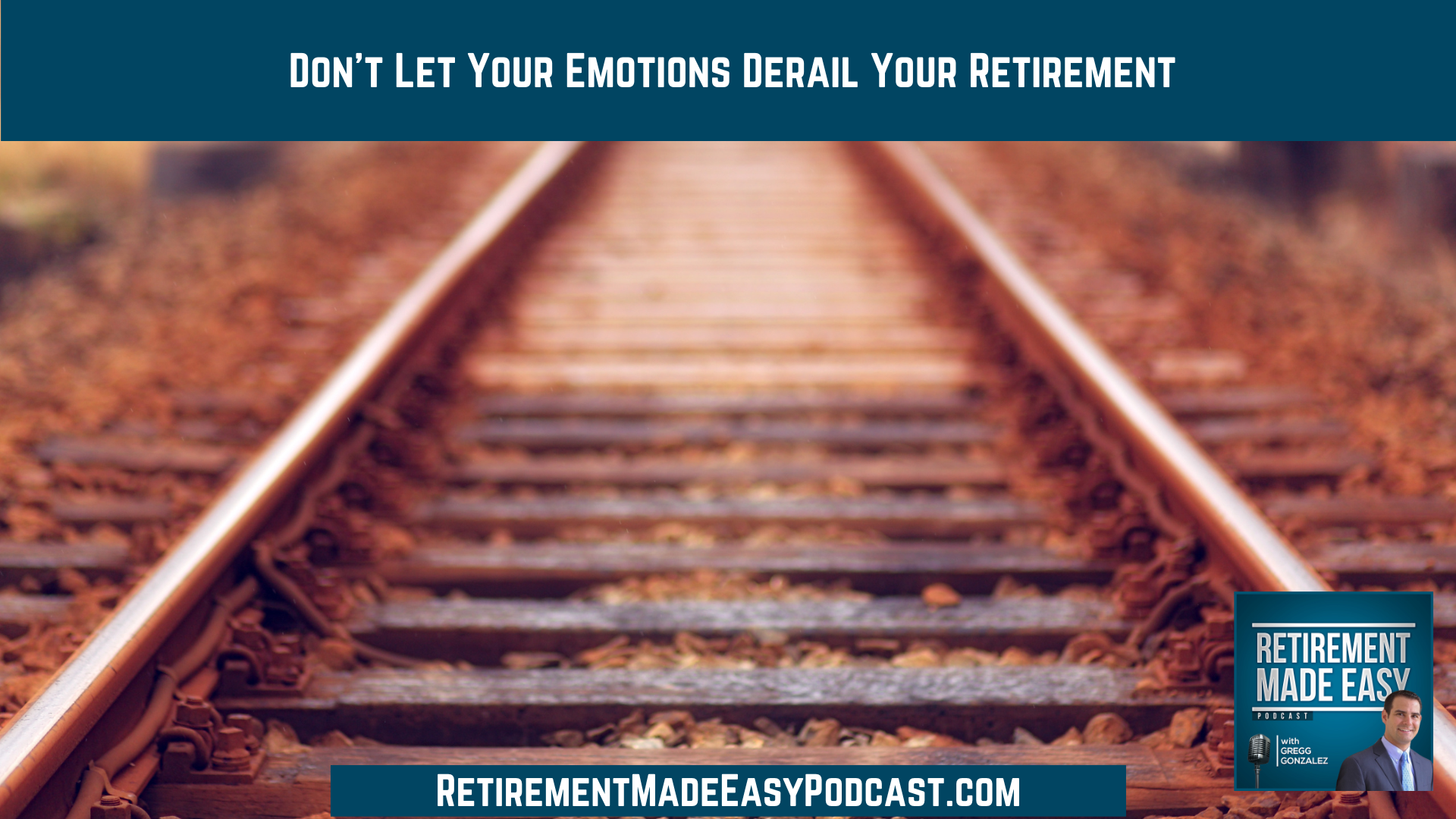
Emotions are often the drivers of our financial decisions. This year we’ve seen record inflation. The Fed continues to raise interest rates. There is a banking crisis. Then there’s the discussion of whether or not we’re in a recession. Many people have wiped their savings and emergency funds and have held them as cash because they’re worried their bank or credit union might fail. 2024 is another election year.
But a lot of this is noise. The market will always fluctuate because of numerous factors. As a financial planner, when short-term concerns arise, it’s my job to remind people of the long-term goals they have. There will be numerous things per year that can throw us off course—if we react adversely. Listen to this episode of Retirement Made Easy to learn more about controlling your emotions when things get tumultuous.
You will want to hear this episode if you are interested in…
- [6:49] Why you can’t let short-term concerns derail long-term goals
- [9:42] Should you put money into CDs or money markets?
- [11:23] People make purchase and investment decisions based on emotions
- [15:52] Learn more about the bucket strategy for investing
How your emotions can derail your retirement
Let’s say we do a retirement plan for somebody and it tells us they need a 4.5% per year return to sustain their retirement for 30 years. But they get scared because of a bank failure and decide to take all of their money out of mutual funds, ETFs, Bonds, etc. and move it to an FDIC-insured money market or a short-term CD that is paying 1.5%.
It doesn’t take a rocket scientist to see that this won’t sustain them. There’s a 3% shortfall. If they stick with this portfolio, they will run out of money. Fear makes you sacrifice your long-term plans. Even worse, when the market recovers, they won’t reap the benefits.
Should you put money into CDs or money markets?
Should you put money into CDs or money markets? The better question is what rate of return do you need from all of your investments for your retirement to be successful? If the answer is 6%, why lock your money up into something that only pays 4%? People think CDs and money markets are a good idea because they’re safe. But do they work with your long-term plan?
A friend of mine was a car salesman for less than a year. He had a couple that came in who were the easiest to sell a car to because they were ill-prepared. The wife’s car had a leaky sunroof and they wanted to get rid of it. They wanted a new vehicle without a sunroof.
They went on a couple of test drives and within two hours they were out the door with a brand-new car. They didn’t research the purchase. A new vehicle purchase is a big decision but they let their emotions take control. People make purchase and investment decisions based on emotions.
Learn more about the bucket strategy for investing
There are three primary buckets you can allocate funds in to pay for your retirement years. Here’s what each bucket should look like:
- Bucket #1: This should contain your emergency fund, to cover 3–6 months of living expenses
- Bucket #2: This should provide an income stream for paying for retirement
- Bucket #3: This is allocated to growing your retirement to cover the cost of inflation
What you choose to invest in for each bucket is something that must be determined by you and your financial planner. But numerous factors must be considered.
What’s your tax situation? If you’re in the 10% tax bracket and you’re a conservative investor, tax-free municipal bonds won’t make much sense for you. It might make sense for someone in a higher tax bracket.
What about your appetite for risk? Are you comfortable with volatility? If so, your growth bucket may have a higher risk score than someone who is a moderate-risk investor.
How much income do you need from bucket #2? That will dictate what investments you need to produce that income.
These are just a few questions that must be considered to determine what the right investments are. And how you invest in each bucket may change as your needs change.
As a fiduciary, I can’t tell you what to put in your buckets. But I can tell you to work with a financial planner to determine which investments are appropriate. If you don’t have a retirement planner and you’re looking for one, book a free 30-minute coaching call with me!
Resources & People Mentioned
Connect With Gregg Gonzalez
- Email at: Gregg@RetireSTL.com
- Podcast: https://RetirementMadeEasyPodcast.com
- Website: https://StLouisFinancialAdvisor.com
- Follow Gregg on LinkedIn
- Follow Gregg on Facebook
- Follow Gregg on YouTube
Subscribe to Retirement Made Easy
On Apple Podcasts, Spotify, Google Podcasts
Connect With Gregg Gonzalez
- Email at: Gregg@RetireSTL.com
- Podcast: https://RetirementMadeEasyPodcast.com
- Website: https://StLouisFinancialAdvisor.com
- Follow Gregg on LinkedIn
- Follow Gregg on Facebook
- Follow Gregg on YouTube



